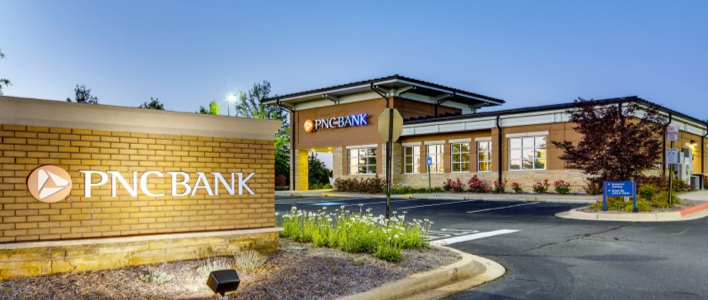PITTSBURGH, March 20 /PRNewswire-FirstCall/ -- Administration associated with health care claims and billing accounts for nearly one out of every three dollars that patients spend on health care, according to a nationwide survey of executives from hospitals and insurance companies.
In contrast, more than three-quarters (76 percent) of the U.S. consumers surveyed said they think that health care administration should account for just 10 percent or less of total health care costs, with a large majority indicating they would be "highly upset" if those administrative costs were as high as 30 percent. Approximately eight in 10 consumers (79 percent) said they would like to see an itemization of the portion of their health care bills that goes to administration versus clinical care.
The health care industry survey of 200 hospital and insurance company executives and 1,000 U.S. consumers was commissioned by The PNC Financial Services Group, Inc., (NYSE: PNC) (http://www.pnc.com/) and conducted by the independent research firm Chadwick Martin Bailey.
"While it is possible that consumers do not fully appreciate the cost and complexity of health care administration, hospital and health plan executives identified significant inefficiencies in the business office, describing a medical claims, billing and payment process that is error prone, redundant and costly," said Paula Fryland, executive vice president and manager of PNC's national health care group (http://www.pnc.com/go/presskits).
Additional survey results include:
- Hospital executives reported that one in five claims submitted, on
average, is delayed or denied and 96 percent of all claims must be
submitted more than once.
- Hospitals that do not use electronic billing or claims submission
processes reported, on average, resubmitting a claim 11 times or more,
or nearly four times more than those hospitals using electronic
processes.
- Insurance executives surveyed said they go back to hospitals two times,
on average, to get all the information needed to pay a claim.
- Nearly a quarter of consumers reported having had a legitimate claim
denied by their health plan; one in five ultimately paid the claim out
of their own pocket.
Improving Efficiencies Impacts Costs and Patient Care
Nearly three-quarters of executives from hospitals and two-thirds of executives from insurance companies indicated that making the claims, billing and payment process more efficient throughout the health care system would help slow the rising cost of health care in the U.S. Similarly, nearly three- quarters of consumers (72 percent) agreed. Additional findings include:
- When asked how much could be saved annually if they had a more
efficient claims, billing and payment process, one-third of hospital
and health plan executives both said their organizations could save at
least $1 million a year.
- The benefit of automated processes most often cited by insurance
executives was that claims processing time significantly reduced, and
63 percent said that customer satisfaction had improved.
- When asked where the cost savings would be applied, the area most often
cited by hospital executives was "reinvested in improving patient
care."
Health Care Consumerism and Transparency
"Health care consumerism is an emerging trend that transfers more decisions regarding health care choices, as well as responsibility for payments, back to the patient," said Fryland. "The survey supports that this growing trend will result in consumers seeking more information about their health care costs. And, both hospital and insurance executives agreed that the demand for transparency will focus on administrative overhead costs that will ultimately root out inefficiencies."
In addition, the survey findings include:
- Nearly three-quarters of hospital executives surveyed (72 percent)
expect high deductible health plans, which require consumers to pay
more upfront costs for care out of their own pockets, to add another
layer of complexity to the claims, billing and payment process.
- More than half (58 percent) of consumers said that knowing what
hospitals or doctors charge for treatment and what insurers are paying
for their services would influence where they seek care.
- A majority of consumers (83 percent), hospitals (77 percent) and
insurance executives (60 percent) responded that insurance companies
should disclose what they reimburse for medical services.
Survey Methodology
The PNC e-Health Study was conducted by the independent research firm, Chadwick Martin Bailey, based in Boston, Massachusetts. The study was based on telephone interviews conducted with 150 executives from U.S. hospitals or health systems, 50 executives from insurance organizations and an online survey of 1,000 U.S. consumers. The survey was completed in February 2007. A PNC e-Health Study media kit containing survey highlights and background information is available through PNC's website at http://www.pnc.com/go/presskits.
For over a decade, PNC has been helping health care providers and insurers re-engineer workflows and reduce the costs associated with handling massive volumes of monthly transactions. PNC currently processes about 3.5 million health care transactions per month for more than 500 hospitals through established connectivity between hospitals, physician groups, pharmacies and their respective payers nationwide.
The PNC Financial Services Group, Inc. (http://www.pnc.com/) is one of the nation's largest diversified financial services organizations providing consumer and business banking; specialized services for corporations and government entities, including corporate banking, real estate finance and asset-based lending; wealth management; asset management and global fund services.
SOURCE: The PNC Financial Services Group, Inc.
CONTACT: Amy Vargo of The PNC Financial Services Group, +1-412-762-1535,
or amy.vargo@pnc.com; or Constance Hubbell Clapp of The Hubbell Group, Inc.,
+1-781-878-8882, or hubbell@hubbellgroup.com
Web site: http://www.pnc.com/
http://www.pnc.com/go/presskits
Company News On-Call: http://www.prnewswire.com/comp/701257.html




